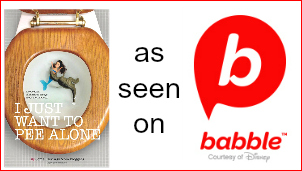We have a saying in our house.
“Don’t yuck my yum.”
We use it when someone starts saying something nasty about something we like.
Kid 1: Ooh! I love X!
Kid 2: Ew! That’s so gross.
KId 1: Hey, you don’t have to like it, but don’t yuck my yum.
We didn’t make it up. One of us must have heard it somewhere. But, it works for us.
I mean, it’s no magic cure-all. There are still WWF quality wrestling matches, slammed doors, and “He won’t quit touching me!” at our house, but this phrase has helped my babies understand that you can not like something that someone else likes without trying to make the other person feel bad for liking it AND without saying anything bad about the other person.
And although “yum” is usually a word that is associated with food, it’s not a phrase that we use in only that way.
We use it for everything.
I think we need a little more “don’t yuck my yum” in the world.
I’ve said it before and I’ll say it again.
We. Don’t. All. Have. To. Like. The. Same. Things.
This applies to so very many things.
It applies to food.
Kale is the best thing that has ever been grown on this Earth. Kale is the most disgusting thing that has ever been grown on this earth.
It applies to books.
People were ready to go all Hunger Games on whether or not they enjoyed the Divergent series.
It applies to movies.
Geez. For awhile there, I thought Facebook was going to break with the people arguing over whether “Birdbox” was a good movie or total crap.
(I’m somewhere in the middle on that one.)
No, we don’t have to agree on everything.
But, the danger comes when we start to personalize the differences in preferences.
When the kid who brings kale in their lunchbox is told that he is disgusting instead of the food getting the insult.
When people who love the Divergent series are told they aren’t serious readers.
Last week, Kim Bongiorno, who writes the blog, Let Me Start By Saying, authored a post where she was comically contrasting her love of books, and her subsequent difficulty in parting with books, with Marie Kondo’s philosophy that you only need to own and keep a few books, total.
It was, as is everything Kim writes, humorous and on point. She made herself the butt of the joke, while not saying anything negative about Marie. It was her own inability to part with her books that was the punchline, and, wow, did I identify with what she said and it made me laugh.
Most people got the joke and played along.
But then the inability to understand Marie’s point of view of books as clutter reared its ugly head and commenters began to make ugly statements about Marie Kondo, herself.
Kim removed the post.
Yucking someone’s yum is everywhere.
And, of course, it applies to politics.
Because, these days, everything applies to politics.
I’m a History teacher, and in my class, we discuss current events every day.
Always have.
There are two schools of thought on discussing politics in a classroom.
One is, never tell the kids where you stand on the issues.
That’s not the school that I subscribe to.
I share my opinions with my students, yet, I tell them, up front, that anything I share isn’t with the goal of changing their minds.
I share my opinions with them so that they will share their opinions with me, and so when we disagree, I can model for them how to disagree with someone respectfully.
And they do it beautifully.
My classrooms are beautifully and radically diverse and we tackle the tough stuff.
I have students who are staunchly anti-immigration having conversations with students who have just arrived from another country, asking questions about their experiences and why they came here, as well as answering questions about why they feel a wall will solve some problems in this country.
I’ve heard students on both sides of every issue say things like “I never thought of it that way before.”
Because they hear me say it to them.
And while, at the end of the class, no one has changed their mind about anything, everyone has learned a little something that they hadn’t really considered before.
Sometimes the “why” someone feels a certain way about something is just as important as what they feel.
I’m not saying we need to be Kumbaya about everything.
We all have non-negotiables.
We all have things where we say “This is absolutely not okay with me, no matter what you have to say about it.”
And that’s okay, too.
But we never get anywhere when we put our hands over our ears and yell “Nah nah nah…I can’t hear you!” when what someone is saying makes us uncomfortable.
Listen to each other.
You don’t have to agree. You can even staunchly disagree.
But listen.
Because the more we refuse to listen, the more divided we become and the harder it will be for us to ever get to a place where we can find the small similarities between us and eventually find compromise.





Leave a Reply